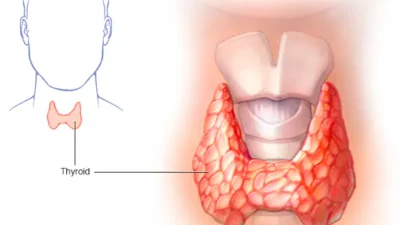Hyperthyroidism is a medical condition characterized by the excessive secretion of thyroid hormones, and it is a common disorder that affects the body’s functions. The thyroid gland, located in the front of the neck, plays a crucial role in regulating metabolism and bodily functions. When the levels of thyroid hormones (thyroxine and triiodothyronine) exceed the normal range, hyperthyroidism occurs.
This condition causes the body’s activities to speed up, leading to negative health effects. Common symptoms include weight loss, increased heart rate, sleep disturbances, excessive sweating, and fragile bones.
The causes of hyperthyroidism vary and may include thyroid inflammation (such as Hashimoto’s thyroiditis) or immune system disorders. Hyperthyroidism is usually diagnosed through blood tests that measure thyroid hormone levels.
Treatment options include the use of medications that suppress thyroid function, and in some cases, radioactive therapy or surgical removal of the thyroid gland. It is recommended to consult a doctor to evaluate the condition and prescribe appropriate treatment based on the individual’s specific situation.




